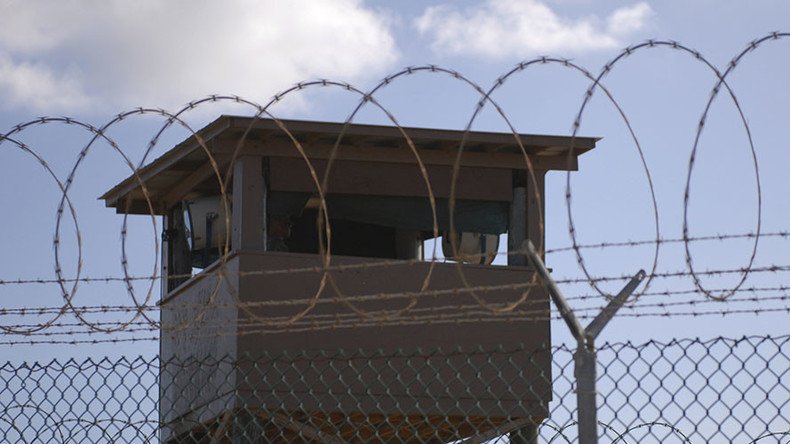‘Guantanamo Diary’ author held without charge for 14 years is cleared for release

The author of the best-selling memoir “Guantánamo Diary,” Mohamedou Ould Slahi has been cleared for release after being held at the military prison for 14 years without charge.
A panel of national security, intelligence, and other officials determined Ould Slahi posed no significant threat to the US and paved the way for his release.
Slahi, the author of the best-selling memoir “Guantánamo Diary,” appeared before the Periodic Review Board on June 2, according to the ACLU.
The government of his native Mauritania has said that it would welcome him home.
“We are thrilled that the PRB has cleared our client,” said Nancy Hollander, one of Slahi’s attorneys.
“We will now work toward his quick release and return to the waiting arms of his loving family. This is long overdue.”
A letter of support from Slahi’s former guard at Guantánamo was among the evidence reviewed by the Periodic Review Board, which determined he was fit for release.
#BREAKING! #Gitmo detainee and author Mohamedou Slahi cleared for release. Here's report I did on him last month https://t.co/EZYFZMc3Hi
— Simone Del Rosario (@SimoneReports) July 20, 2016
Mauritania-born Slahi fought with al-Qaeda in 1990 when it was part of the Afghan anti-communist resistance supported by the U.S.
The federal judge who reviewed all the evidence in the case noted that the group then was very different from the one that later came into existence.
In 2001 Slahi was detained by Mauritanian authorities at the request of the US and rendered, being taken to a prison in Jordan.
Later he was rendered again, first to Bagram Air Force Base in Afghanistan and finally, in August 2002, to the US prison at Guantánamo Bay, where he was subjected to severe torture.
Confirmed: Mohamedou Ould Slahi, one of the most tortured detainees in Guantanamo history, has been cleared for transfer. Story soon.
— Spencer Ackerman (@attackerman) July 20, 2016
Slahi’s groundbreaking memoir “Guantanamo Diary,” recalled how he was subjected to “additional interrogation techniques” personally approved by the then-US defense secretary, Donald Rumsfeld.
The abuse included beatings, extreme isolation, sleep deprivation, sexual molestation, frigid rooms, shackling in stress positions, and threats against both Slahi and his mother.
“Guantanamo Diary”, published in January 2015, was the first and only book to be published by a still-imprisoned Guantanamo detainee and made bestseller lists around the world.
It spent several weeks on the New York Times Best Seller list and has since been translated into multiple languages for publication in more than 25 countries.
In 2010 Slahi lodged a habeas petition challenging his detention. A federal district court judge determined Slahi’s detention was unlawful and ordered his release. The U.S. government successfully appealed that decision, and the habeas case is still pending.
!!!!!!!!! https://t.co/W0JD09LGGV
— ACLU National (@ACLU) July 20, 2016
The ACLU spearheaded the campaign for the author’s release, gathering support from both the US and abroad.
There are currently 76 prisoners remaining in the detention facility, 30 of whom have been cleared for release.
“There are still dozens of other men trapped in the misery that is indefinite detention at Guantanamo. Time is running out for President Obama to fulfill his promise to close aand prevent its injustice from tarnishing his legacy,” Hina Shamsi, one of Slahi’s attorneys and director of the American Civil Liberties Union’s National Security Project said.












